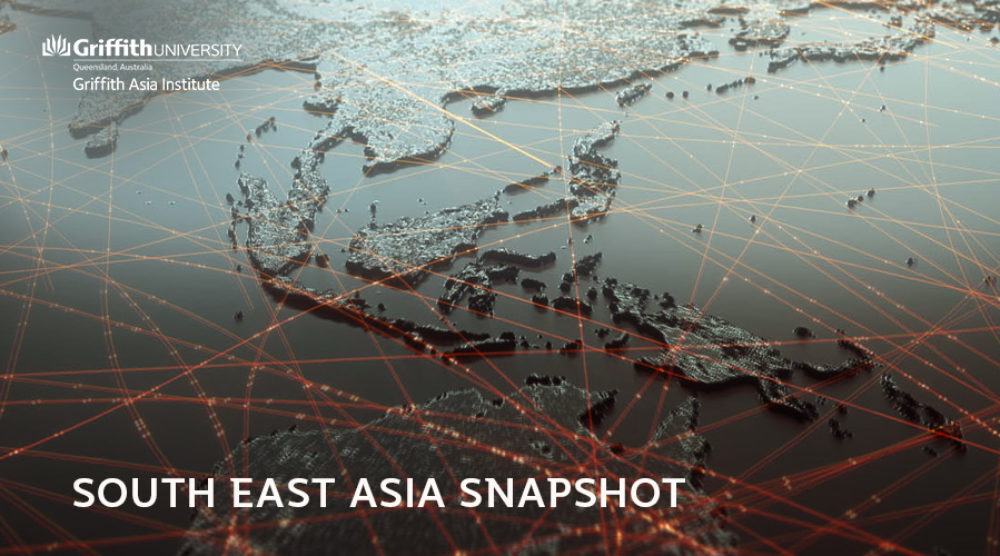Cambodia and China will hold military exercises
The Royal Cambodian Armed Forces and China’s People’s Liberation Army (PLA) will hold their largest joint naval exercise, code-named “Golden Dragon-2023”, in Cambodia. The Golden Dragon-2023 exercise will be conducted from 23 March until 8 April 2023.
This joint naval exercise will consist of over 3,000 troops; however, only 253 Cambodian troops will participate directly in the drill. Moreover, it will use more than 300 vehicles and other equipment for mine and explosives removal, and epidemic control. The purpose of the exercise is to advance comprehensive strategic cooperative partnership, enhance trust, and boost both militaries’ capabilities in conducting anti-terrorism and humanitarian aid activities.
While some view the exercise as enhancing Chinese influence in the region, leading to broader geopolitical implications in Southeast Asia, others believe that similar naval encounters will occur more frequently in the near future. This cooperation has also raised concerns by some countries in the region which view China’s military expansion as a threat to regional stability. However, the Cambodian Prime Minister reiterated that Cambodia welcomed all countries to conduct joint military exercises. Chen Xiangmiao, the Director of the World Navy Research Center at the National Institute for South China Sea Studies believes the drill only focuses on non-traditional security exchange and cooperation.
Despite the critics, the success of this exercise in naval cooperation will further strengthen both countries’ relations and is likely to encourage further Cambodia–China joint military cooperation.
The Thai King dissolved the Parliament paving way for an election
After the Thai Prime Minister prepared a decree seeking the parliament’s dissolution, the Thai King endorsed the decree to effectively dissolve the Thai Parliament moving the country toward the general election.
The election will be conducted on 14 May with over 52 million eligible voters. It is expected to showcase the political showdown between the Pheu Thai party, led by the Shinawatra family, and Thailand’s conservative pro-military establishment. According to an opinion survey conducted by the National Institute of Development Administration, Paetongtarn Shinawatra – the daughter of the ousted leader Thaksin Shinawatra – was the leading candidate and her polling stood at 38.2 percent, while the current Prime Minister Prayut Chan-o-cha could only secure 15.65 percent of voters polled.
The fall in Prayuth’s popularity was partly due to the Thai’s frustration with the political turmoil and military coup, and more demands for transparency in governing the country. Prayuth’s economic mismanagement was also a factor downgrading his party’s popularity. Some saw this as the most consequential election in Thailand’s contemporary political history, while the Election Commission has urged everyone to respect the rules to ensure a smooth election.
Myanmar junta to accept 1000 Rohingya refugees in its pilot repatriation program
The Myanmar junta will take 1,000 Rohingya refugees from Bangladesh in its pilot repatriation program as announced on 22 March 2023.
This announcement was made after 17 junta officials visited the Rohingya refugee camps in Bangladesh recently through the support of China, with facilitation from the United Nations and cooperation from Dhaka. Currently, the military government is checking lists and the repatriation program would likely begin by mid-April with around 1000 people to be received by Myanmar in the first batch.
However, this plan was condemned by the Free Rohingya Coalition’s co-founder Nay San Lwin viewing it as a PR campaign to ease pressure from China and other countries, and that the junta could have revealed this plan in the past as it already had a list of more than 800,000 Rohingya refugees. Some Rohingya believed the junta will not give them any rights since they view their residency documents with scepticism and as not being genuine. The UNHCR believed the current condition of Rakhine State is not conducive for the sustainable return of the refugees while the Arakan Rohingya National Alliance accused the junta of orchestrating this plan to avoid censure from the International Court of Justice.
Since the junta’s repatriation plan would only ensure the Rohingya’s return to Myanmar and not their safety and well-being after their return, the plan’s future remains uncertain.
President Widodo bans Iftar gatherings for Indonesian government officials
President Joko Widodo issued a directive banning Indonesian government officials from having Iftar gatherings – a meal taken together at the end of the fasting period – during the Islamic holy month of Ramadan.
The official reason for the ban is to prohibit civil servants from holding gatherings because Indonesia is still transitioning from the COVID-19 pandemic to endemic stages. The prohibition is aimed at more senior government employees such as ministers of the Indonesian Onward Cabinet, the Attorney General, the Commander of the Indonesian National Armed Forces, and the Chief of the Indonesian National Police. However, the ban does not apply to the general public and Indonesian citizens are free to have their Iftar gatherings.
Divided opinions over the ban have arisen as some are worried that the move can be used to accuse the President’s government of being anti-Islamic. The Indonesian Cabinet Secretary clarified and defended the directive that government officials should hold the gathering in a modest way as some of the high-ranking officials’ Iftar gatherings at their private residence could include expensive catering from hotels, on-site food preparation stations, and entertainment options like karaoke. However, there remains confusion over how this ban would apply as some public officials are expected to instruct their employees not to hold Iftar gatherings while others viewed this policy as unfair and unwise, particularly as bans on other activities like large weddings and assembling crowds have already been lifted.
While the Iftar ban’s excuse of preventing the spread of COVID-19 has been challenged, President Widodo has attempted to prevent further lavish displays of wealth by tax and other government officials due to ongoing public scrutiny.
Sovinda Po is a Research Assistant at the Griffith Asia Institute.








